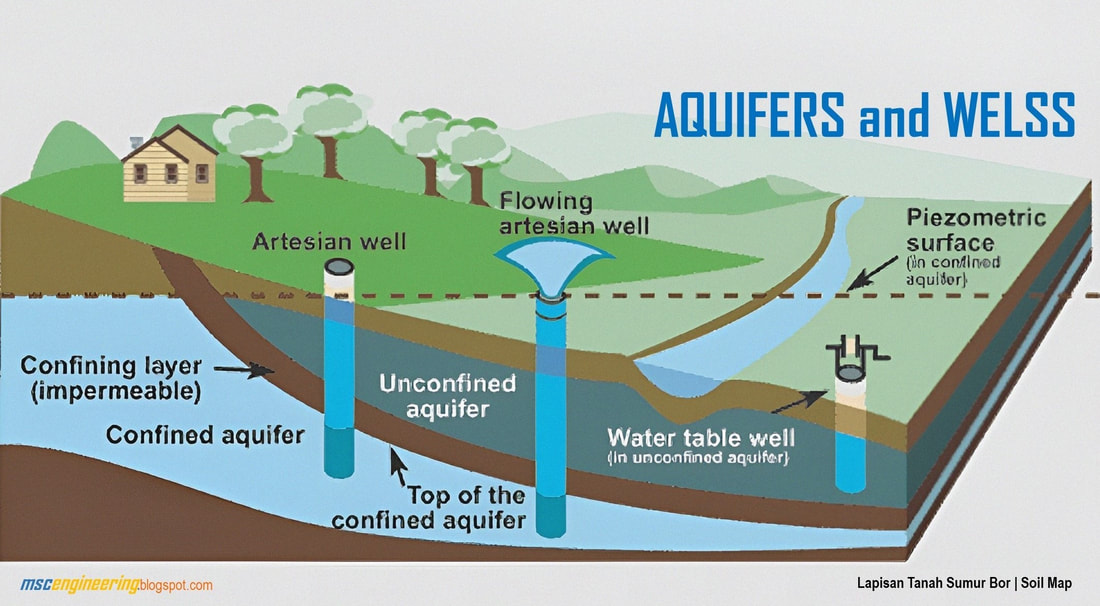 Water resources engineering is a specialized field of civil engineering that deals with the management, development, and conservation of water resources. It focuses on the sustainable use of water for various purposes, including domestic, industrial, agricultural, and environmental needs. Overview Water resources engineering plays a crucial role in ensuring the availability and efficient utilization of water resources. It encompasses the study of water supply systems, water quality, hydrology, hydraulic structures, and the design of water management systems. Key Responsibilities:
Skills and Education A career in water resources engineering requires a strong background in mathematics, hydrology, fluid mechanics, and environmental science. A bachelor's degree in civil engineering, water resources engineering, or a related field is typically required, with advanced degrees offering further specialization. Water resources engineers must possess knowledge of water management principles, hydraulic modeling, and water quality analysis. They utilize computer simulation models, geographic information systems (GIS), and remote sensing techniques to analyze data and make informed decisions. Importance of Water Resources Engineering Water resources engineering is vital for the sustainable management and development of water resources. It addresses the challenges of water scarcity, water pollution, and climate change, ensuring the availability of clean water for current and future generations. Through their work, water resources engineers optimize water allocation, minimize water losses, and enhance water use efficiency. They contribute to the development of infrastructure that supports economic activities, protects ecosystems, and meets the growing demand for water in a changing world. Furthermore, water resources engineering plays a critical role in mitigating the impacts of extreme weather events. By designing and managing hydraulic structures and flood control measures, water resources engineers help reduce the risks associated with floods and protect vulnerable communities. Conclusion Water resources engineering is a specialized discipline that focuses on the sustainable management and utilization of water resources. By applying engineering principles, water resources engineers play a crucial role in meeting water demands, protecting water quality, and managing water-related risks. Their work spans various aspects, including water supply systems, irrigation and drainage, hydrology, hydraulic structures, and water quality management. Through their expertise, water resources engineers contribute to the development of resilient and sustainable water management practices. With the increasing challenges of population growth, climate change, and water scarcity, water resources engineering will continue to play a vital role in ensuring the availability and efficient use of water resources. By addressing water-related issues, water resources engineers contribute to the well-being of communities, the protection of the environment, and the sustainable development of society.
0 Comments
 Environmental engineering is a branch of engineering that focuses on applying scientific and engineering principles to protect and improve the environment. It involves designing and implementing solutions to address environmental challenges, such as pollution, waste management, and resource conservation. Overview Environmental engineering plays a crucial role in safeguarding the natural environment and human health. It encompasses a wide range of disciplines, including water and wastewater treatment, air pollution control, solid waste management, environmental impact assessment, and sustainable development. Key Responsibilities:
Skills and Education A career in environmental engineering requires a strong foundation in mathematics, physics, chemistry, and biology. A bachelor's degree in environmental engineering, civil engineering, or a related field is typically required, with advanced degrees offering further specialization. Environmental engineers must possess knowledge of environmental regulations, environmental management systems, and pollution control technologies. They utilize computer modeling, laboratory analysis, and data interpretation to assess environmental conditions and develop appropriate solutions. Importance of Environmental Engineering Environmental engineering is crucial for protecting and preserving the environment, promoting sustainable development, and ensuring human health and well-being. It addresses the challenges of pollution, resource depletion, and climate change, contributing to a more sustainable and resilient future. Through their work, environmental engineers help reduce pollution, conserve resources, and minimize the environmental impact of human activities. They play a critical role in improving air and water quality, managing waste, and mitigating the effects of climate change. Furthermore, environmental engineering is at the forefront of developing innovative technologies and practices to address emerging environmental issues. It promotes the integration of environmental considerations into engineering projects, fostering a balance between development and environmental conservation. Conclusion Environmental engineering is a specialized discipline that combines scientific knowledge and engineering principles to address environmental challenges. By developing sustainable solutions, environmental engineers help protect the environment, ensure the availability of clean resources, and create a healthier and more sustainable future. Their work spans various fields, including water and wastewater treatment, air pollution control, solid waste management, environmental impact assessment, and sustainable development. Through their expertise, environmental engineers contribute to creating a harmonious relationship between human activities and the natural environment. With a focus on environmental protection, resource conservation, and sustainable practices, environmental engineering plays a crucial role in shaping a more sustainable and resilient world for present and future generations.  Transportation engineering is a specialized field of civil engineering that focuses on the planning, design, operation, and maintenance of transportation systems. It encompasses various modes of transportation, including roadways, railways, airports, seaports, and public transit. Overview Transportation engineering plays a crucial role in facilitating the movement of people and goods, ensuring the efficient and safe operation of transportation networks. It involves analyzing traffic flow, designing transportation facilities, and implementing strategies to enhance mobility and reduce congestion. Key Responsibilities:
Skills and Education A career in transportation engineering requires a strong foundation in mathematics, physics, and engineering principles. A bachelor's degree in civil engineering, transportation engineering, or a related field is typically required, with advanced degrees offering further specialization. Transportation engineers must possess knowledge of transportation planning and traffic engineering principles. They utilize computer-aided design (CAD) software, traffic simulation models, and transportation planning tools to analyze data and make informed decisions. Importance of Transportation Engineering Transportation engineering is essential for the development and maintenance of efficient and sustainable transportation systems. It improves mobility, enhances connectivity, and supports economic growth by facilitating the movement of people and goods. By optimizing transportation systems, transportation engineers help reduce congestion, travel times, and fuel consumption. They promote sustainable transportation options, such as public transit and non-motorized modes, to mitigate the environmental impact of transportation. Furthermore, transportation engineering plays a crucial role in ensuring transportation safety. By designing safer roadways, implementing traffic control measures, and improving transportation infrastructure, transportation engineers contribute to reducing accidents and saving lives. Conclusion Transportation engineering is a specialized discipline within civil engineering that focuses on designing and managing transportation systems. Through their expertise, transportation engineers contribute to the development of efficient, safe, and sustainable transportation networks. By considering factors such as traffic flow, transportation demand, and infrastructure design, transportation engineers help improve mobility, reduce congestion, and enhance the overall transportation experience. Their work shapes the way people and goods move, connecting communities and driving economic growth. With their knowledge and skills, transportation engineers play a vital role in building and maintaining transportation systems that meet the evolving needs of society while considering environmental, social, and economic factors. 
Overview Geotechnical engineering plays a critical role in the planning, design, and execution of infrastructure projects such as buildings, bridges, roads, tunnels, and dams. It involves assessing the properties and behavior of subsurface materials to determine their suitability for construction and to mitigate potential risks. Key Responsibilities:
Skills and Education A career in geotechnical engineering requires a strong foundation in mathematics, geology, and engineering principles. A bachelor's degree in civil or geotechnical engineering is typically required, with advanced degrees and professional certifications offering further specialization and career advancement opportunities. Geotechnical engineers must possess expertise in geotechnical investigation techniques, laboratory testing, and geotechnical analysis software. They should have a comprehensive understanding of soil mechanics, geotechnical principles, and the application of relevant codes and standards. Importance of Geotechnical Engineering Geotechnical engineering is crucial for ensuring the stability, safety, and longevity of structures. By understanding soil behavior and its interaction with structures, geotechnical engineers help prevent ground failures, foundation settlements, and other geotechnical-related problems. Through their expertise, geotechnical engineers minimize risks associated with construction in challenging soil conditions. They contribute to the development of sustainable and resilient infrastructure, considering factors such as soil erosion, groundwater management, and environmental impacts. Conclusion Geotechnical engineering is an essential discipline within civil engineering that focuses on understanding and managing the behavior of soil and rock. By applying scientific principles and engineering techniques, geotechnical engineers ensure the safe and efficient design, construction, and maintenance of infrastructure projects. Their work spans from conducting site investigations and analyzing soil properties to designing foundation systems and addressing geotechnical hazards. Through their expertise, geotechnical engineers contribute to the successful realization of infrastructure projects while ensuring their long-term stability and resilience. The importance of geotechnical engineering lies in its ability to mitigate risks associated with ground conditions, provide sustainable solutions, and create a solid foundation for the built environment. With their knowledge and skills, geotechnical engineers play a pivotal role in shaping a safer and more resilient world. Structural engineering is a specialized branch of civil engineering that focuses on the design, analysis, and construction of safe and efficient structures. It deals with the ability of structures to withstand various loads and forces while ensuring stability, functionality, and durability.
Overview Structural engineering plays a critical role in the construction industry, encompassing the design and evaluation of a wide range of structures, including buildings, bridges, dams, tunnels, and towers. The primary objective is to create structures that can withstand anticipated loads, such as gravity, wind, earthquakes, and environmental factors. Key Responsibilities
Skills and Education A career in structural engineering requires a strong background in mathematics, physics, and engineering principles. A bachelor's degree in civil or structural engineering is typically required for entry-level positions. Advanced degrees and professional certifications can further enhance career prospects. Structural engineers must possess a solid understanding of structural analysis software, computer-aided design (CAD) tools, and relevant industry codes and standards. Strong analytical and problem-solving skills, attention to detail, and effective communication abilities are also crucial for success in this field. Importance of Structural Engineering Structural engineering is vital for ensuring the safety, functionality, and longevity of structures. It contributes to the development of resilient buildings and infrastructure that can withstand natural disasters and other extreme events. By designing efficient structures, structural engineers optimize material usage, reduce construction costs, and minimize environmental impact. Structural engineering also plays a crucial role in the preservation and rehabilitation of existing structures. By conducting thorough assessments and implementing appropriate repair or retrofitting strategies, structural engineers extend the lifespan of buildings and infrastructure, ensuring their continued safety and usability. Conclusion Structural engineering is a specialized discipline within civil engineering that focuses on designing and constructing safe and reliable structures. Through advanced analysis, innovative design techniques, and adherence to codes and standards, structural engineers contribute to the creation of resilient and sustainable infrastructure. Their expertise ensures the safety, functionality, and longevity of structures, shaping the built environment and improving the quality of life for communities worldwide. |
|

 RSS Feed
RSS Feed
